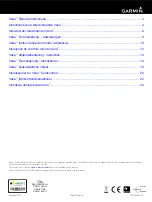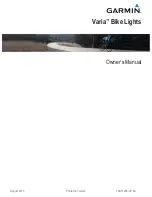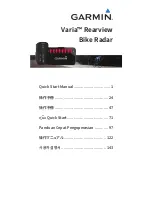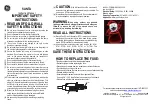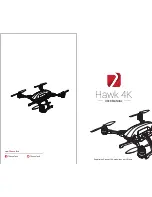
NEULOG SOUND SENSOR GUIDE
NeuLog sound logger sensor
NUL-212
The NeuLog sound sensor can be used for any science experiment or activity which
involves either sound intensity or sound wave measurements such as in the fields of
Physics, Mechanics, Biology, Environmental Science, Acoustics, etc.
The sensor comes pre-calibrated so you can start experimentation right out of the box
using any of the following guides.
Just a few of the thousands of possible experimental subjects that can be done with
the NUL-212 sensors are: wave theory, sound pressure, sounds intensity, sound
theory (pitches, frequencies, etc), wave interference, and many more.
The sound sensor uses the following units of measure:
Decibel (dB): A unit of measure to show the intensity (loudness of sound).
Please note that this is a logarithmic unit.
Arbitrary analog units (Arb): An arbitrary unit to demonstrate waves,
frequencies, and periods.
Quick start procedure:
PC or Mac Computer
Materials needed:
NUL-212 Sound Sensor
USB-200 USB Module
A USB to mini USB cable (which comes with the USB-200)
Your sound sensor needs to be connected to a USB-200 module. The USB-200
module then connects to a computer via a USB to mini-USB cable. Please note that
you cannot plug the sound sensor directly into the computer.
Resident PC software and browser based software can be downloaded for free at
www.NeuLog.com/dowload as well as a full software user guide.
Note:
Make sure not
to download and install both types of software they will conflict on the computer.
Procedure:
1.
Install the NeuLog software
2.
Connect the USB-200 module to the PC or Mac
3.
Connect the sound sensor to the USB-200 module (they directly plug
together). Please note there is no calibration required for this sensor.
4.
Open the NeuLog software.
5.
Once a sound sensor logo appears on the left side of the screen the probe
has been automatically identified and you can begin experimentation.
6.
If the sound sensor is not automatically identifi
ed then click the “Search for
sensors” icon to find the sensor.
7.
Select the “On-line experiment” button; this will open a graph below.
8.
Click on the “Module setup” button located on the sound sensor icon in the
module window to change the sensor settings if need be.
9.
Click on the experiment set up button to change the experiment settings if
need be (experiment duration for example).
10. The sound sensor will give a live reading in the box to the left of the screen
while plugged in.
11. To run an experiment and collect
data click “Run experiment”.
12.
To end data collection early, click “Stop experiment”.
Tablet, smart phone device
Materials needed:
NUL-212 Sound Sensor
WIFI-201 WIFI module
BAT-200 Battery
Your sound sensor needs to be connected to a WIFI-201 module. The WIFI-201
module will create a closed NeuLog wifi network which will stream the NeuLog data to
a device of your choosing. Once your device is wirelessly connected to the NeuLog
network you can run experiments and collect data through a browser of your choosing.
Procedure:
1.
Connect the sound sensor directly to the left side of a WIFI-201 module (no
wires required).
2.
Connect a BAT-200 module to the right side of the WIFI-201 module.









